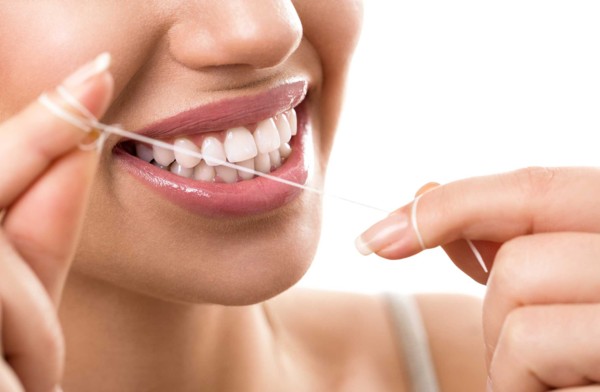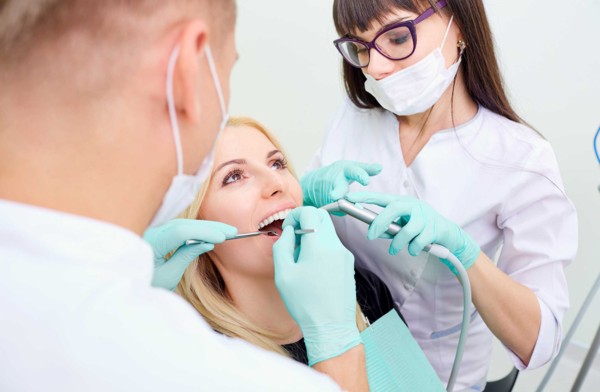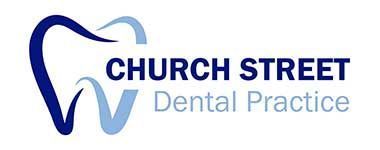Dental Hygiene

Here at Church Street Dental Practice we believe that preventative treatment is the key to a healthy mouth. A little extra time and attention placed on your cleaning routine will greatly reduce your need for treatment in the future.
Oral hygiene is an important part of a daily routine. It is the practice of keeping one's mouth clean and free of disease, by regular brushing and cleaning between the teeth. It is important to brush on a regular basis, as it can prevent dental disease from occurring.
The most common types of dental disease are dental decay (also known as dental caries), gingivitis and periodontitis. Regular brushing consists of brushing at least twice a day, after breakfast and before going to bed.
Cleaning between your teeth is called interdental brushing and it is as important as tooth brushing. This is because a toothbrush cannot reach between your teeth, as such large surface areas are often missed.
There are many tools to clean between the teeth, including floss, flossettes, interdental brushes, TePe brushes and water picks. Your dentist and hygienist can give advice as to which is the best option for you.
Gum Disease
Even with the best brushing routine it is very difficult to remove all plaque deposits within the mouth. This is especially difficult if calculus build up is not removed on a regular basis as the rough surface increases plaque retention.
Plaque is a yellow sticky film that forms on the teeth and gums and can often be seen at the gum margins with the use of disclosing tablets. Bacteria in plaque convert carbohydrates in food (such as sugar) into acid that demineralises teeth, eventually causing cavities (tooth decay). Effective daily brushing with toothpaste and flossing will help remove plaque.
Plaque can also cause inflammation of the gum (gingivitis), making it red, tender and more prone to bleeding when flossing or brushing your teeth. If this is not treated, bones around the teeth can be affected, eventually leading to periodontitis, an aggressive form of gum disease. If not treated the gums will recede and the loss of bone structure around the tooth may cause teeth to become mobile.
The treatment for gum disease is to remove plaque inside the deep pockets between the tooth surface and the soft tissues using specialized dental equipment. Damage caused by severe gum disease (periodontitis) can not be corrected. However appropriate treatment and effective home care can significantly reduce the rate of damage and can often prevent further bone loss.
If you are at all concerned by the health of your gums it is important that you visit us at the earliest opportunity and your dentist will be able to provide the correct advice and treatment plan.
Our Dental Hygienist
Our hygienist will provide a professional deep clean of your teeth and gums removing plaque and calculus. This is often referred to as a scale and polish. Root debridement or root planing is a more involved process that is sometimes necessary for cases of severe gingivitis and periodontitis.
Our hygienist provides care predominantly for more complex cases as an addition to your routine scale and polish provided by your dentist.
They will encourage patients to look after their teeth and gums by:
- demonstrating tooth brushing and flossing techniques.
- giving advice on diet.

They will provide treatments for:
- removing plaque
- cleaning and polishing teeth to help prevent gum disease
- applying antibacterial treatments to reduce decay
- giving local anaesthetic under the supervision of a dentist
- target problem areas within the mouth and advise how best to care for them
- encouraging and demonstrating tooth brushing and flossing
Children
It is important to encourage children to care for their teeth from an early age. Here at Church Street Dental Practice we can register a child from the arrival of their first tooth. From this start your dentist will provide, age appropriate, cleaning and dietary advice.
With frequent, regular visits your child will soon feel at ease with their dentist. This early introduction to dentistry as a toddler can be key to reducing dental phobia in later life.
Young teeth can be particularly vulnerable to damage due to large amounts of sugar in food and drinks and the difficulty in getting children to brush properly and for the correct time.
Our friendly staff will always make the effort to ensure children are seen in a fun and positive appointment, a patient sticker often helps! We try to keep these appointments brief and with minimal instruments to keep the dental experience as positive as possible.


